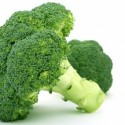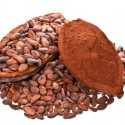Bok choy is low in calories and contains many phyto-nutrients, vitamins, and minerals. One cup of shredded bok choy has more than a full days intake of vitamin A and contains 52% recommended daily value of vitamin C. This vegetable is important when it comes to blood pressure. It provides ample potassium (176 mg/cup) and… Continue Reading
Monthly Archives: September 2013

Broccoli
One serving of broccoli has only 50 calories! Broccoli is high in vitamin C, vitamin A, folate, calcium, and fiber. Folate intake is very important for women of reproductive age because folate decreases the chance of neural tube defects. Broccoli contains magnesium and calcium which help regulate blood pressure. Calcium can help decrease chance of… Continue Reading

Prophylactic Ankle Bracing
The high prevalence of ankle injuries in athletes has led to the increased recommendation and use of prophylactic ankle braces. Lisa Hardy and her colleagues conducted this research in order to test how the use of prophylactic ankle braces effects multidirectional single-limb dynamic balance.… Continue Reading

Sleep Deprivation May Cause Your Afternoon Food Cravings, Leading to Obesity
Short sleep duration, less than 7 hours per night, increases the risk of being obese compared to those who sleep 7-8 hours per night. Previous studies showed this association several times, yet could not show a cause-effect relation due to some strong limitations of those studies. The American Journal of Clinical Nutrition published the latest… Continue Reading

Commercial Baby Food May be Less Nutritious
Many baby foods claim to be full of nutrition and allow your little one to fully grow. However, a recent study found that commercial baby food may not be all that it claims. Many commercial foods are sweet foods that actually don’t provide much extra nutrition. In this study 462 baby food products in the… Continue Reading

Coffee
The caffein buzz that helps us to face the morning is not the only benefit of coffee. Recent research shows that it may decrease rates of Parkinson’s disease, gallstones, type 2 diabetes, dementia, liver cancer, heart arrhythmia, stroke (in women), and even Alzheimer’s disease, non alcoholic fatty liver, cirrhosis and gout. Additionally, some studies show… Continue Reading

Cocoa
Cocoa powder is made by removing most of the fat (cocoa butter) from the tropical cocoa bean. Cocoa powder is super nutritious; it is rich in Magnesium (27 mg/1 tbsp), Phosphorus (40mg/1tbsp), Fiber (2g/1tbsp). Cocoa also contains some Iron (0.8mg/1tbsp, Calcium (7mg/1tbsp), Copper (0.2mg/1tbsp) and it is very low in calories, only 12 calories per… Continue Reading

Carb Loading
Carb loading, or muscle glycogen supercompensation, is a process used to increase glycogen storage in the muscles beyond normal levels. It is hoped that this extra storage will then allow athletes to maintain their exercise for a longer period of time before exhaustion starts to kick in. While this is may seem like great news,… Continue Reading

Nutritional Supplementation of Inpatients Suggest Health and Cost Benefits
Malnutrition of patients in the hospitals is a serious but under-watched problem. Malnutrition may slow down the healing processes and reduce effectiveness of medications in patients. Malnourished patients also have higher risks of poor outcomes, including increased length of stay, healthcare costs, complication costs, readmission and even mortality. Thus, several research works have already been… Continue Reading

Fruit May Lower Risk of Type 2 Diabetes
Do you want to know another reason why eating fruits maybe beneficial to your diet? A recent study done by the Harvard School of Public Heath shows that eating fruit may decrease your risk of type 2 diabetes. Researchers gathered information from the Nurses’ Health Study, Nurses’ Health Study II, and Health Professionals Follow-up study. … Continue Reading







